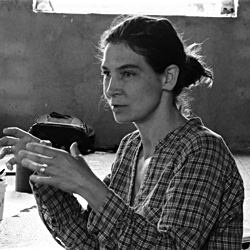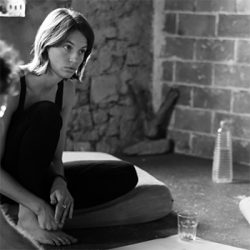Building social change organisations for resilience and impact
In recent years there has been an explosion of interest in agile and decentralised approaches to self-organising structures. Drawing on systems thinking, information theory, and notions of agility, these approaches have revolutionised practice in traditional organisations from public sector institutions to corporations and businesses. Are those of us working for social change actually falling behind? What can we learn from these approaches that can be harnessed to the values we want to embody? How can we better design our organisations for resilience, agility, and impact? This training is hosted as part of the Ulex South Project
Organisations play a central role in supporting individuals and groups to come together to learn, act and have an influence towards social, economic and environmental justice. When they work well they multiply our influence, they channel energy, and they promote creative and innovative action. Yet organisations face numerous challenges from sustaining themselves financially, to dedicating time to reflection and learning, and to managing diverse points of view and skills.
Many grassroots organisations reject hierarchies in favour of flat structures and systems, but can suffer a loss of responsiveness, continuity and scope for innovation. New approaches to organisations can help solve those problems. Others theorise about swarming and the power of non-linear dynamics, but often fail to apply them beyond critical moments of spontaneity. The right balance of structure can enable agility and spontaneity, whilst supporting longer term purpose. More traditionally hierarchical organisations often seek to benefit from adopting new self-management methods (like those explored in Frederick Laloux’s Reinventing Organisations), but too often applying these approaches merely mask the old hierarchies. This training will explore these kind of challenges, give you an overview of the field, and build your confidence to find evolve organisations that are agile, resilient, effective and able to embody their values.
Many organisations rely and thrive from successful collaborations or partnerships, and social networks and social media are supporting even greater connectivity between organisations. We will look at how to build valuable and empowering connections between organisations – to create supportive and beneficial relationships. These connections form an important part of strategies for resilience when societal, economic and environmental challenges are deepening.
This course aims to explore some of the key elements that underpin organisational effectiveness and resilience including:
• balancing autonomy and cooperation
• supporting both innovation and conservation
• honouring diversity and commonality
• being rooted in an evolutionary purpose and values
• selecting the structure and systems that will lead to greatest creativity and effectiveness
• providing meaningful work and relationships which enable individuals to flourish
• contribute to healthy working culture and work life balance
The course will explore questions such as:
• How can organisations, networks and formal groups ensure that they are effective and resilient in supporting social change efforts?
• How can our organisations empower individuals and synergise their efforts?
• How can social change organisations ensure that they don’t replicate faults with the business as usual approach?
• How can individuals best contribute to forming, sustaining and ending social change entities without burning out?
• How can our organisations keep learning and evolving?
Who is it for?
• Those who are setting up, or have set up their own organisations, networks or formal groups and wanting to building their understanding of how to ensure their entity is resilient and supports their vision
• Those who advise on or manage aspects of organisations, networks, or groups and would like to explore this area with others, and consider how to best influence change
• Those working in flat structures and taking an active role in improving how they work
• Those interested in, or researching, the area of organisational development within social change
• Those practising mindfulness and interested in how mindfulness or broader contemplative practices can support social change entities.
During the course we will look at a range of organisational methodologies such as Sociocracy and Holacracy, examine systems approaches to organising (as in the work of Margaret Wheatley), unpack case studies and take time to explore how to apply different learning in our own situations.
Venue
This training is hosted as part of the Ulex South Project
Related Reading
Frederic Laloux, Reinventing Organizations (2014)
Donella H. Meadows, Thinking in Systems – A primer (2008)
Patricia Shaw (2002) Changing conversations in organizations. Routledge.
Adrian Maree Brown (2017) Emergent strategy. AK Press.
Social Presencing Theatre: Conversation with Arawana Hayashi
In the solidarity economy:
(See details of our approach to radical economics here)
Contact us
to apply

Location:
María worked for the Red Cross in community development, strengthening civil society, education, and food security in Latin America and Africa. Building on her studies in social psychology and international development, she studied Alternative Economics at Schumacher College, UK. This led her into work on organisational change with NGOs and grassroots movements. María specialises in complexity and participation applied to organisations: organisational structures and culture, emergent strategy, leadership amongst others. She co-founded The Eroles Project, a learning for action project and La Bolina, a systemic project looking at repopulation, inclusion and agroecology. María´s co-authored: Small is Important: Learnings from an integration and regeneration Project. Factores Clave para la Acción Reflexión Colaborativa, Enfoques y herramientas participativas en la cooperación al desarrollo, Activism and spirituality.

Location:
Ruth Cross is co-founder of Eroles Project – an international learning for action centre, and, Asociación La Bolina – a visionary intercultural initiative working to regenerate land and lives through creating social integration and sustainable livelihoods for locals, migrants and refugees in El Valle, Andalucia, Spain. She is the Artistic Director of Cross Collaborations, an award winning arts for change immersive theatre company.
Ruth is an experienced arts activist, social theatre maker, researcher and educator specialising in instigating transformative and regenerative change. She can be found directing immersive performance with migrants and refugees, creating participatory arts action campaigns and coordinating cross-disciplinary projects with organisations, decision-makers, civil society and local communities.
For the last 10 years Ruth has facilitated capacity building training with activists and social movements. She is a research contributor with Schumacher Research in Action community, is a member of the international Delicate Activism community and of Social Arts network ImaginAction. As well as a collaborator with Asociación Solidaria Andaluza de Desarrollo (ASAD).

Location:
Team to be confirmed.

Location:
An Maeyens (she/her) is a facilitator and trainer with over two decades of experience in grassroots movements. She specialises in creative, inclusive agenda design and brings deep expertise on group culture, power dynamics, and transformative learning. Starting of in the anti-globalisation movement she has trained thousands in civil disobedience, supported international coalitions, and developed multilingual training programmes and toolkits. Her work spans movements, cultures, and countries, guided by a commitment to care, accessibility, and leaderful organising.

Location:
Ari’s activism began in 2002, at age 16, as a Bosnian refugee in Canada, where they founded and coordinated a group for LGBTIQ high school students and allies. They were a co-founder and leader at kolekTIRV in Croatia and Trans Network Balkan, involved in community organizing, advocacy, program management, team coordination, capacity building, education, media work, campaigns, events, fundraising, etc. In 2024, they joined the Supervisory Board of the Croatian Trade Union Collective of United Precarious Workers and Activists (SKUPA).
Beyond the Balkan region, Ari served as a Board member at Transgender Europe (TGEU), where they held roles as Secretary, Treasurer, and later Co-chair. They have also been a trainer with the Center for Artistic Activism and served on the Advisory Committee and since 2022 as a Community Care Facilitator at FRIDA — The Young Feminist Fund. Since 2024 they are the Operations Manager at Global Philanthropy Project.

Location:
Sergio (all pronouns) was born in Romania and migrated to Germany in the early 2010s. In the past, he was a social worker with homeless people and a social consultant for Eastern European migrants for various organisations. Trained as a filmmaker, he spent two years making a documentary about the ‘civic reawakening’ in Romania and the waves of protest it brought with it. In connection to this, Sergio is currently co-steering the development of an online open-source participative knowledge production platform on activism in Romania. Over the past nine years, Sergiu has offered his skills to various journalists, grassroots collectives and campaigns, mostly working within the labour rights, climate justice, international solidarity and anti-authoritarian movements in Germany and Romania. Nonetheless, his biggest focus since 2020 has been his work as an organiser with the anarcho-syndicalist Free Workers Union, where he focuses mostly on organising Romanian migrant workers on construction sites, in factories and in the agricultural field.

Location:
Linzy Na Nakorn is a movement director, politicised somatics practitioner, community organiser and facilitator. For the past decade she has been facilitating movement, body work and creating theatre, dance and participatory performance that advocates for and organises with communities in pursuit of housing, disability and racial justice. Her movement practice focuses on trauma-informed approaches to building resilience, capacity and joy via way of the body for personal, interpersonal and community sustainability. Linzy was a Co-Director of The Big Ride for Palestine in partnership with The Gaza Sunbirds, Native Woman Ride and Middle East Children’s Alliance; using cycling as a tool for mobilising active solidarity and in support of campaigning for the rights and self-determination of the Palestinian people. Linzy is part of a UK network of activists and artists advocating for Radical Care – supporting organisations, researchers and institutions to work towards system change in societal approaches to labour, leadership and access.

Location:
Jeroen (he/him pronouns) has been involved in grassroots social movements for more than two decades now, starting back when he was fifteen. Throughout the years the fights for “climate justice” and “migrant justice” have been consistently on top of the list of struggles that make his heart beat faster. A key transformative moment for Jeroen was reading Paulo Freire’s Pedagogy of the Oppressed. Freire’s revolutionary pedagogy gave him a language to support the creation of emancipatory learning environments, rooted in a desire for collective liberation. Jeroen has also been exploring in depth Boal’s Theatre of the Oppressed and Joanna Macy’s The Work That Reconnects among other methodologies to build his trainer’s toolkit. Inspired by the liberatory possibilities of these traditions, he started an organization with a friend, LABO vzw, based in Belgium, where he has worked as a trainer and campaigner between 2013 and 2023.

Location:
Ella brings more than 10 years’ external experience working with not for profit and community based organisations across diverse themes including: advocacy for migrant communities; local community engagement in national policy making; and structural relationships between poverty and disenfranchisement, and education and poverty. Immersed in critical theory in her early 20s she brings a holistic and questioning approach, and is passionate about systemic solutions that centre relationship and interconnection between ecology and society. A long standing member of the collective, Ella has been part of the core team since the inception of the Ulex Project. Her work bridges facilitation, developing project partnerships, governance, strategy, operations, and project and programme evaluation. She has developed and overseen more than 70 partnerships with a range of different actors across European social movements.
Ulex: Latin (argelaga Catalan, gorse English) noun:
1. A thorny-evergreen flowering shrub, with a high capacity for regeneration and resilience. Its seedpods open in contact with fire and it reshoots from charred stumps. A successionary plant that grows well under challenging conditions. It improves soil fertility through nitrogen fixing, preparing the way for renewed biodiversity.
2. A traditional choice for igniting fires. Burns hot and bright.
3. A networked project adding nutrition and fertility to European social movements through training and capacity building. It kindles the realisation of social justice, ecological intelligence, and cognitive vitality.